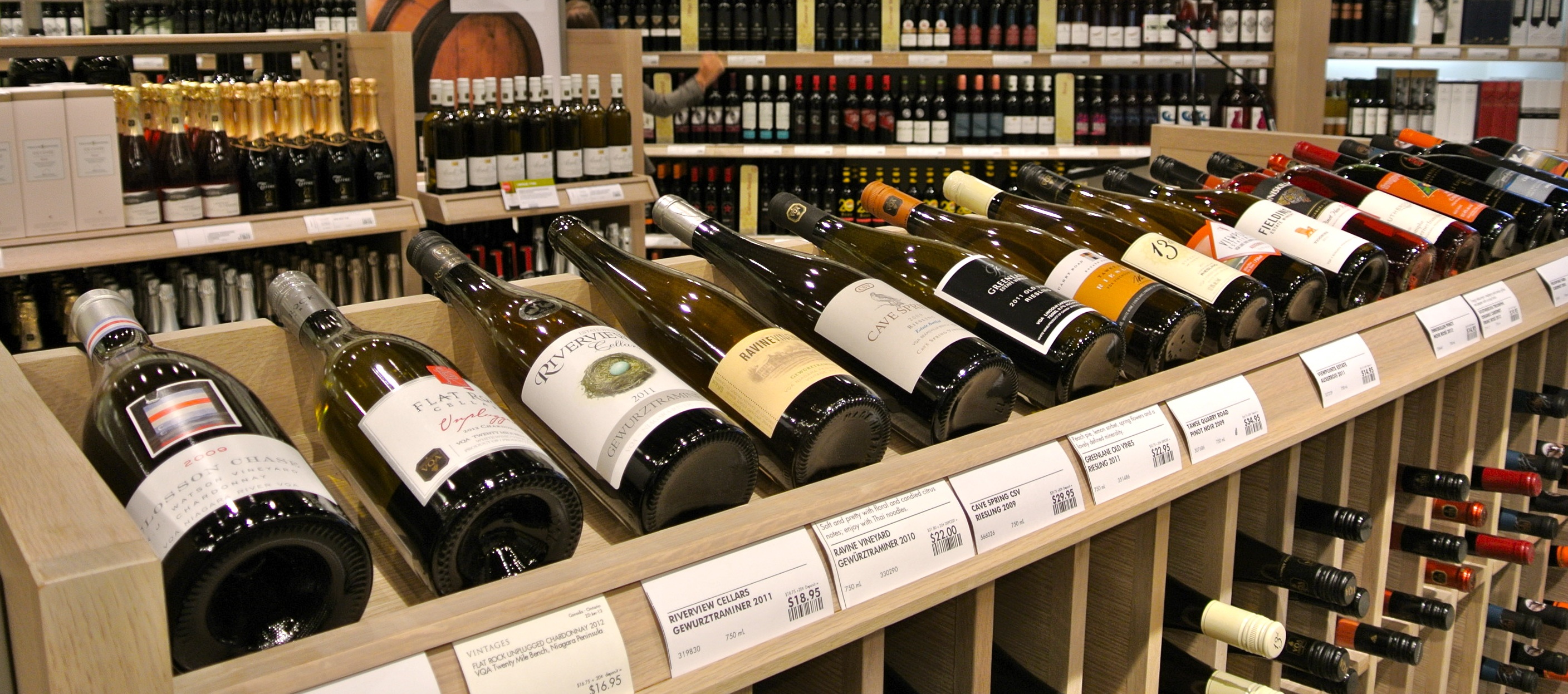
What a wild and crazy ride it has been on the road to modernizing Ontario’s archaic booze laws. But it appears, just maybe, that a new direction is finally becoming clearer — the opening up of new retail streams for Ontario’s VQA wineries.
A story by Martin Regg Cohn in the Toronto Star today says that new privately run wine distribution outlets are coming to 70 supermarkets across the province this fall and that number will grow to 150 new outlets following that.
Cohn says in the story that Ontario’s privatization czar, Ed Clark, gave cabinet ministers a confidential briefing Wednesday on his final proposals — spelling out the balancing act between rising consumer demand for wine in grocery stores and industry fears of liberalized sales.
According to Cohn’s sources, and confirmed by Wines In Niagara, grocers could bid on new distribution licences at the next scheduled auction of beer licences, with wine bottles expected to be on supermarket shelves later this year.
The proposed plan is better than expected for 100% VQA wineries and, one would assume, worse than expected for those larger wine companies (Peller and Constellation Brands with a combined 268 licences) who have enjoyed exclusivity in grocery stores and other outlets with their grandfathered licences.

The plan calls for an initial granting of 70 grocery store licences to sell wine by the fall of this year. Half of those would be granted to sell only 100% VQA wines, according to a wine industry source who spoke to Wines In Niagara and asked for anonymity.
The other 35 licences would be approved for stores to sell 50% foreign wines and 50% VQA, wines with 20% of that reserved for “smaller VQA wineries.” The definition of “smaller” is unclear.
“They are doing their best to protect VQA,” said the Wines In Niagara source.
The goal is to give local VQA wines a head start over the foreign competition during a three-year phase-in period, according to the Star story. Following that, international wines could be sold in those supermarkets that were selling only VQA wines.
The Star mentioned Ontario craft cider producers as benefiting from the new plan, but nothing more. I have reached out to Ontario cider producers to see what they know and will update this story as information becomes available.
Sales of spirits would still be restricted to the LCBO.
In 2019, another 40 Ontario-only wine licences would be issued, plus an additional 40 unrestricted outlets that could also sell imported wines (up to 50%). The combined total would be 150 new grocery outlets for wine, with all protectionist provisions phased out by 2022.
While consumers have been asking for better access and convenience in their shopping experience for alcohol in Ontario, it is the VQA wineries in Ontario that have pushed hard for changes to the distribution system that has seen little change since the end of Prohibition in 1928.
“This is very good for Ontario wineries,” the Wines In Niagara source said. “Number one, it creates a new wholesale channel.” From the very beginning, Ontario wineries have only asked that there be greater access to VQA wines, not preferential treatment.
“What we are getting is much better than what we asked for,” the WIN source said.
As it works now, if an Ontario winery goes to the LCBO and the product manager doesn’t want to sell your wine, the winery is screwed. There is no other alternative other than at the winery’s retail store.
With the changes, presumably, the winery can knock on any number of grocery store doors and offer up their wines for potential placement on store shelves. “New stores will be able to pick any product,” the WIN source said.
“Having a hundred new buyers changes the dynamic,” the source said.
Industry and government sources, told the Star that most players are relatively satisfied with the trade-offs that were required to reach this aggressive change in booze retailing. The proposed changes will “unlock the Ontario VQA wine industry’s true growth potential,” Richard Linley of the Wine Council of Ontario, who has been getting regular government briefings, told the Star.
Smaller Ontario wineries have been handicapped in recent years by two large corporations that dominate existing distribution in many supermarket outlets. Most Ontarians are only subtly aware of those wine kiosks perched alongside a couple of hundred supermarkets, selling mostly blended wines (with 25 per cent domestic content), the Star story said.
Those boutiques have enjoyed a sweet deal that goes back decades, but it appears that is all going to change.
“Word on the street,” the WIN source said, “is that a number of those stores will be repurposed to include all VQA wine,” not just their own products. The source said to expect up to 150 of those grandfathered licences to be affected.






Comment here